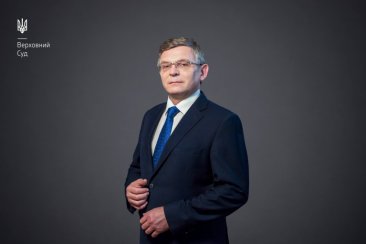Contact center of the Ukrainian Judiciary 044 207-35-46

Supreme Court Judge in the Cassation Criminal Court, Arkadii Bushchenko, delivered a report at the launch of the HELP training course “Prohibition of Ill-Treatment”, reviewing the Supreme Court’s practice in applying European standards against torture and ill-treatment.
As Arkadii Bushchenko emphasized, it is the court’s duty to verify the effectiveness of investigations into allegations of ill-treatment. The burden of proving the admissibility of evidence in such cases, in accordance with Article 92 of the Criminal Procedure Code of Ukraine (CPC) and international standards, lies with the prosecution, not the defence, since the defence lacks procedural powers to conduct its own investigation.
The speaker cited examples from Supreme Court practice, highlighting cases where the right to defence was crucial. For instance, the mere formal presence of a lawyer during investigative actions does not guarantee this right if the suspect is deprived of the opportunity for private communication with their attorney. The judge stressed established European Court of Human Rights approaches, according to which the right to access a lawyer includes not only physical presence but also the ability to provide private instructions to the client before questioning.
The importance of the role of an official responsible for the welfare of detainees, who should record all the circumstances of a person's stay in police custody, was also noted. According to the judge, neglect of this function leads to serious gaps in the verification of allegations of ill-treatment. The Supreme Court has repeatedly recognized extrajudicial statements as inadmissible if allegations of torture were not disproved by proper and effective investigation.
Arkadii Bushchenko noted that the number of complaints about torture has significantly decreased compared to the 1990s, thanks to procedural guarantees enshrined in the 2012 CPC of Ukraine, including the prohibition of extrajudicial evidence and the state’s duty to provide free legal aid.
The speaker also addressed Supreme Court review of cases in light of ECHR rulings. The Grand Chamber of the Supreme Court has the power to overturn national decisions in cases where violations of the Convention for the Protection of Human Rights and Fundamental Freedoms found by the ECtHR have affected the outcome of criminal proceedings. As an example, the judge cited high-profile cases in which individuals sentenced to life imprisonment were released after review due to insufficient proof of their participation in a criminal offence. At the same time, he discussed the complex issues courts face when some evidence is deemed inadmissible, but the remaining materials formally confirm guilt.
The event was organized by the Council of Europe HELP Project in cooperation with the National School of Judges of Ukraine and the Training Centre for Prosecutors of Ukraine.